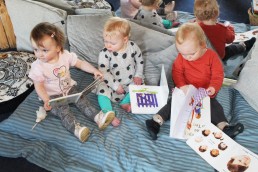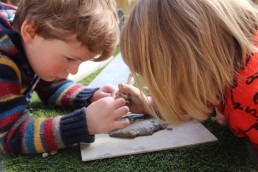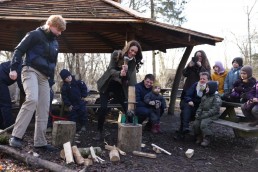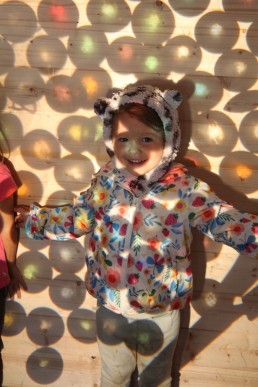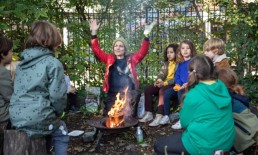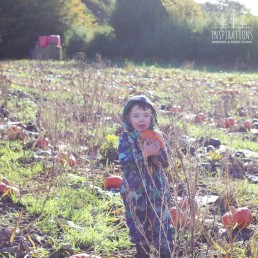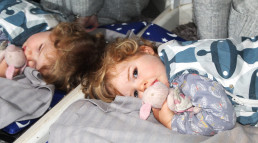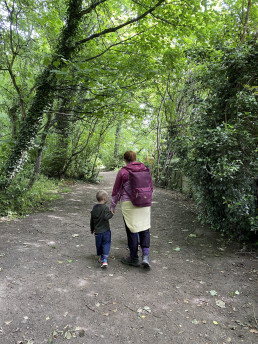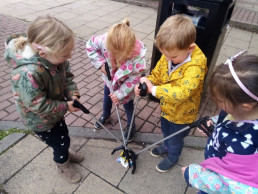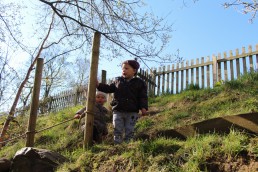The Joy of Reading
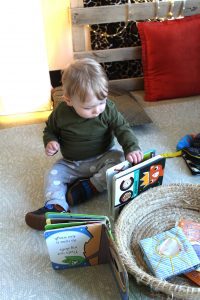 The term ‘Reading’ falls under the literacy aspect along with Writing, in the 'Birth to 5 Matters'- the guidance we follow to support the children in their development. As educators and parents we can spark that joy of reading from inside the womb. From noticing and engaging with sounds and images in the environment, handling books, re-telling favourite stories, songs and jingles, to enjoying an increasing range of print (fiction and nonfiction), and being able to recall and discuss stories or information that has been read to them or they have read themselves.
The term ‘Reading’ falls under the literacy aspect along with Writing, in the 'Birth to 5 Matters'- the guidance we follow to support the children in their development. As educators and parents we can spark that joy of reading from inside the womb. From noticing and engaging with sounds and images in the environment, handling books, re-telling favourite stories, songs and jingles, to enjoying an increasing range of print (fiction and nonfiction), and being able to recall and discuss stories or information that has been read to them or they have read themselves.
Literacy in the early years is very important as it is fundamental in early education and is a skill that is vital for everyone. It can include talking about books, print in the environment, early mark making, as well as sharing books and reading. The opportunity to read crops up multiple times a day, whether it be reading books, road signs, shop/supermarket signs/logos, or even familiar words such as name tags.
Why is it so Important for our little ones?
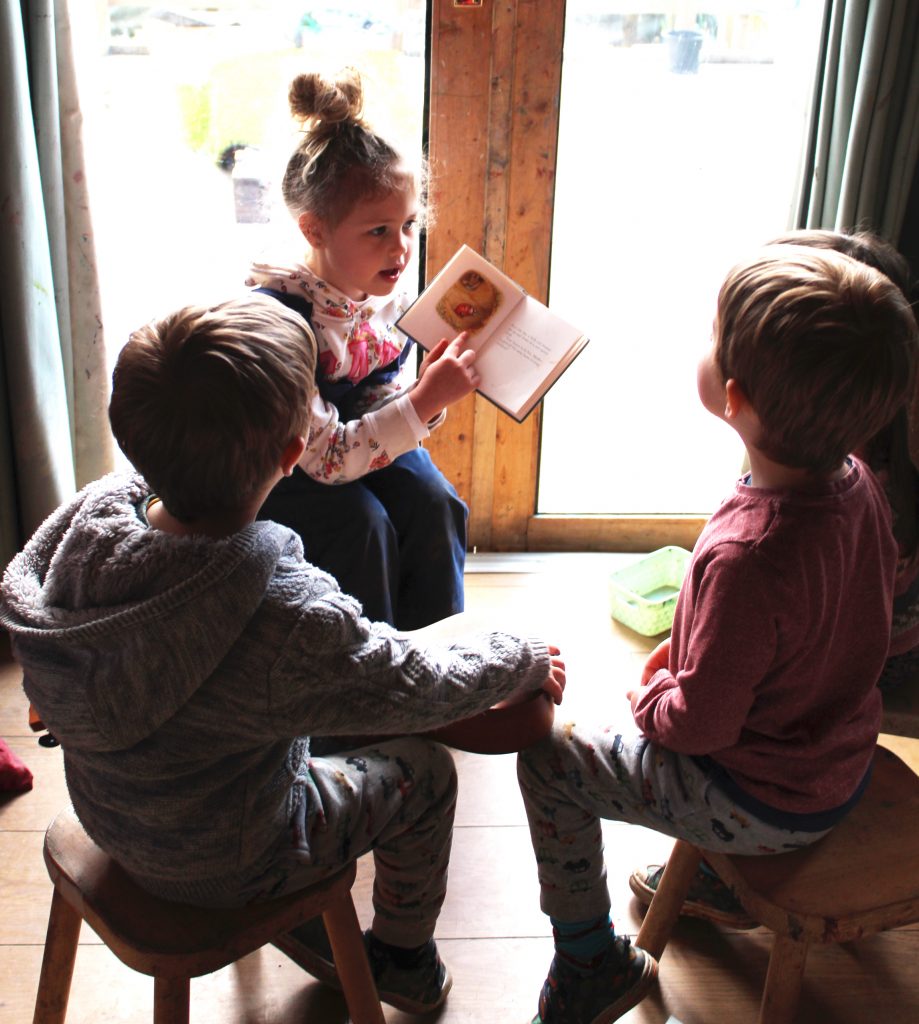
Vital connections in the brain are made very early in life and when stimulated this forms the basis of all future learning and intellectual ability. In simpler terms, reading to your child at a young age stimulates these brain cells and each time it strengthens them and they form connections with even more brain cells. Stimulating your young child’s brain cells through these early experiences will help them to become better listeners, readers, and communicators as well as instilling a lifelong love of learning.
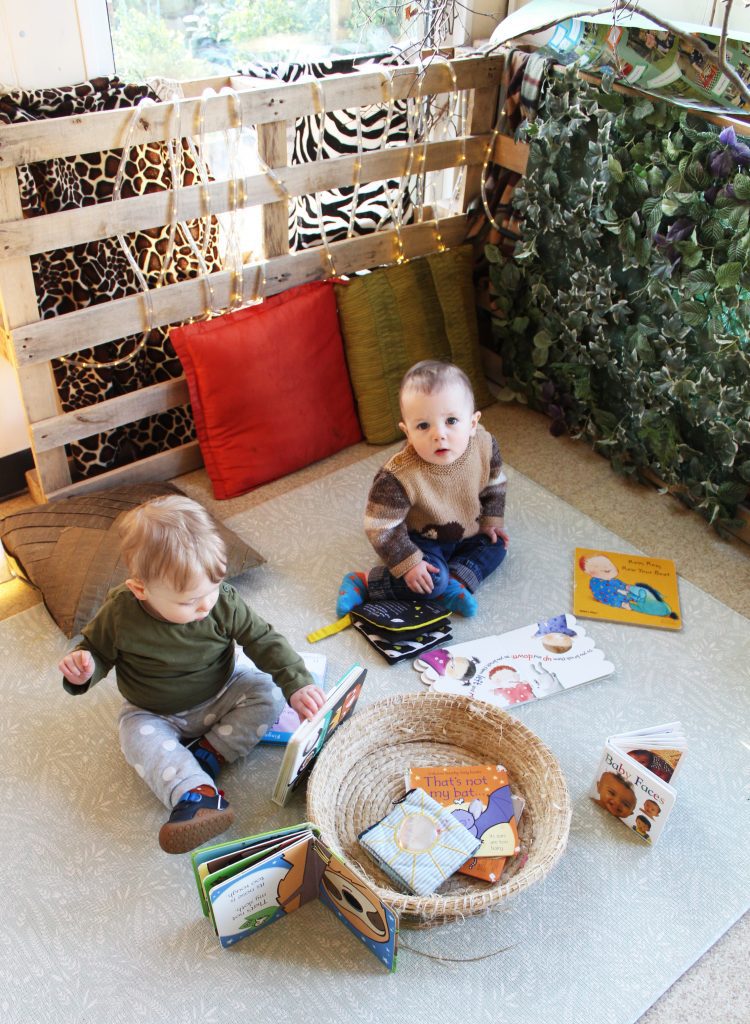
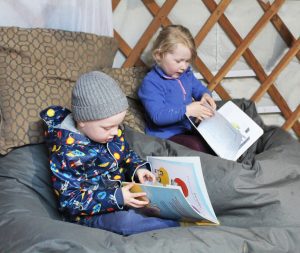
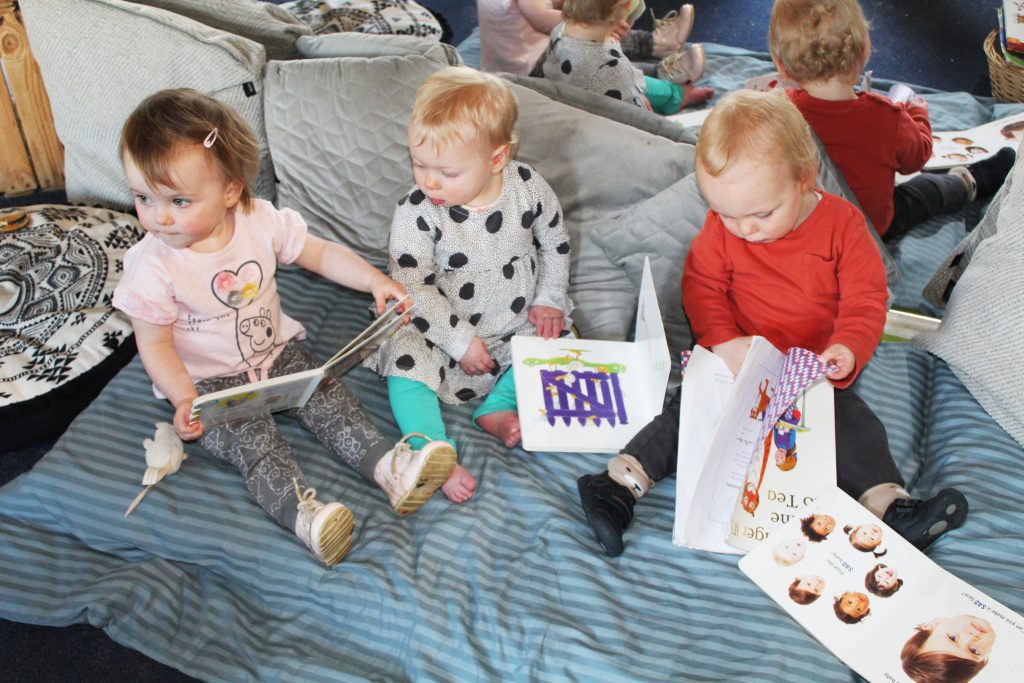
When you think about why reading is important, you may think of the obvious benefits such as expanding your vocabulary and knowledge but what many people don’t realise is that for young children, it develops so many other skills too. Early reading ignites creativity, sparks curiosity and stimulates the imagination in young children. Often this leads to role play as children grow which helps to develop other skills such as empathy and problem solving. While these are significant benefits to young children, the biggest psychological benefit is how reading helps to grow self-confidence and independence from such an early age. The simple act of taking time out of your day to read to your baby or sit down with your child helps to promote greater maturity and discipline, which are all essential attributes when it comes to your child learning to read in a school setting as sometimes the psychological pressure can be too much. If you read with your children early on and help them to learn at their own pace in a fun setting, you can foster a love of reading and help them to become competent and confident at it before having to do it in front of others
How do we support the joy of reading?
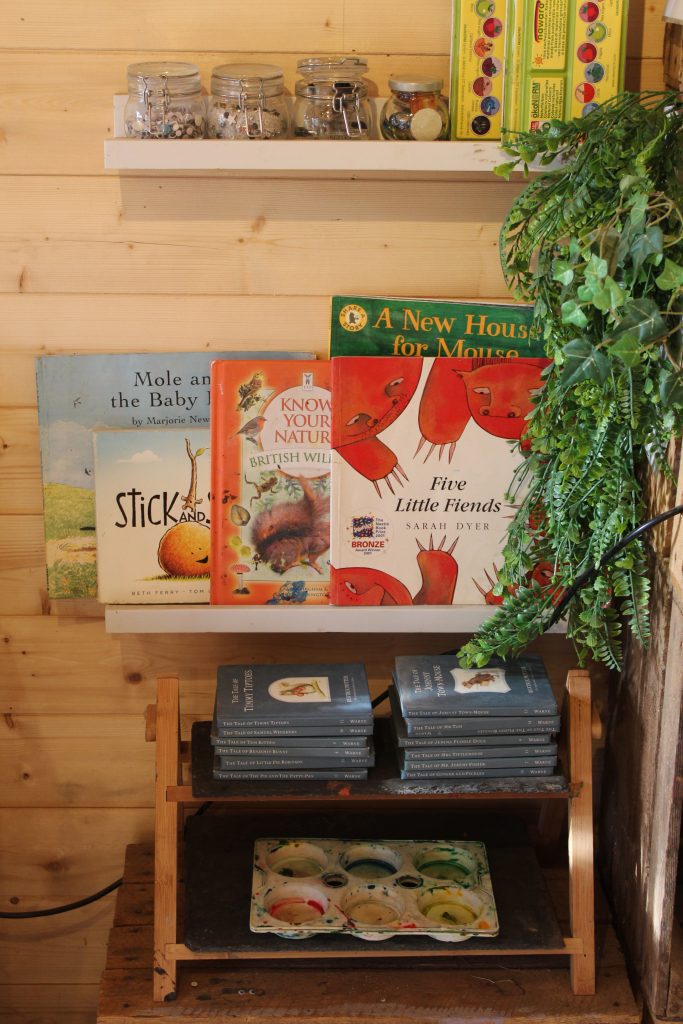 Here at Inspirations, we make available many challenges and resources to support the joy of reading. Whether it be the lending library we have made in our front entrance, easy to reach book display shelves for independent access at all times, changing the books depending on the children’s interests, projects, or diversity and providing information books on such things as animals/mini beasts, space, and school.
Here at Inspirations, we make available many challenges and resources to support the joy of reading. Whether it be the lending library we have made in our front entrance, easy to reach book display shelves for independent access at all times, changing the books depending on the children’s interests, projects, or diversity and providing information books on such things as animals/mini beasts, space, and school.
We support each activity area/area of provision with books as an extra provocation or to act as inspiration. We create cosy areas for the children to access freely when they wish to have some down time and look at books with their friends or independently as well as creating carpet time sessions for the children to have a controlled story time with an adult. We celebrate World book day and visit the local library, and have, on a couple of occasions invited the librarians in to do a session with the children. Creating a literacy area in our preschool provision for the children to freely access, as well as having names for the children’s pegs and self registration, helps the children with letter and name recognition, which then leads them on to phonetically sounding out the initial sounds/words. Sharing familiar stories or stories with Rhymes so that the children can join in with rhymes and repeated refrains is something the children love to do.
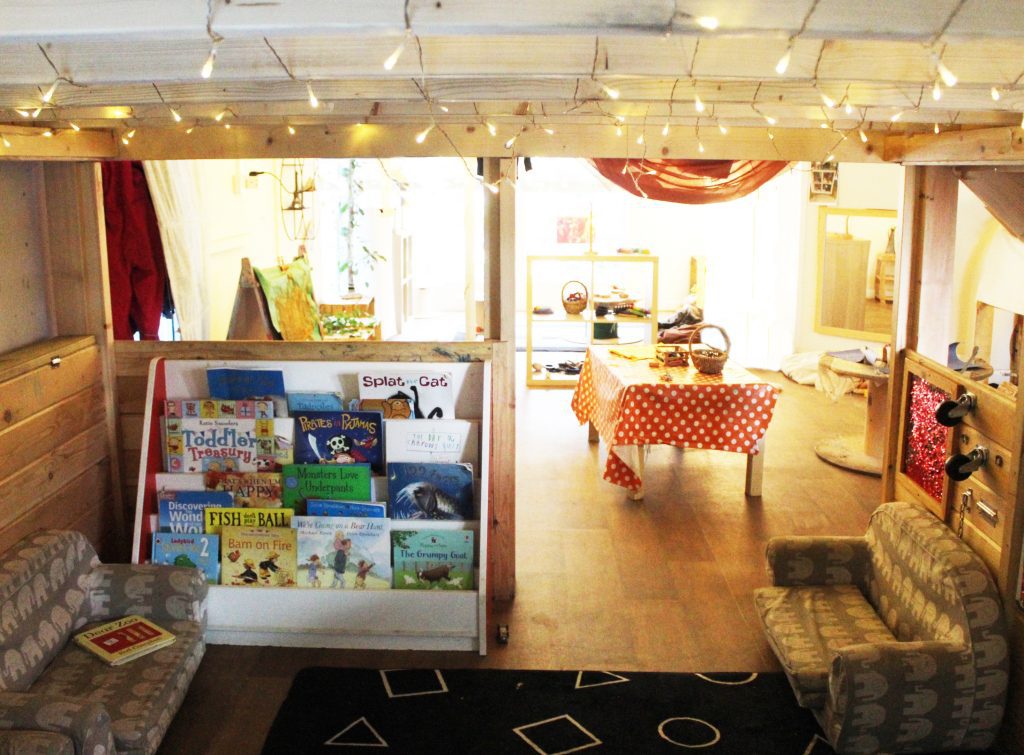
Now you know why reading is important and all the benefits that it offers, start to make the time to read a little with your children every day. Soon you’ll find that cuddling up in bed reading stories is your favourite part of the day and it’s doing your children a world of good too, because after all...
“There are perhaps no days of our childhood we lived so fully as those we believe we left without having lived them, those we spent with a favourite book.”
― Marcel Proust, Days of Reading
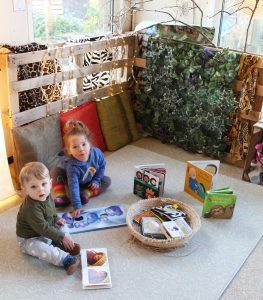
Let’s shake up Education
At Inspirations nurseries we go the extra mile to ensure we are providing the children in our care a ‘second to none’ learning environment. Our ethos and pedagogy speak of children learning trough their interests, through nature and art, both independently and with their peers. Our environment is set up to encourage thought processing skills, logical problem solving and collaborating ideas to solve problems within small groups of friends and/or the adults supporting them.
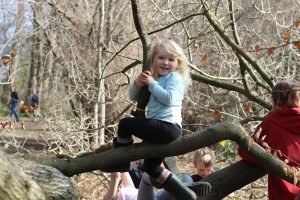
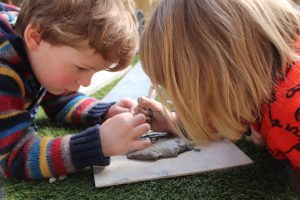
Our love of all thing’s nature encourages us to consider the planet and our impact on its future evolution. We recycle, upcycle and reuse and repurpose our waste as much as possible and discuss with the children our environmental impact wherever appropriate.
The time, care and commitment required to offer our children this rich varied learning environment is considerable, the rewards however, are clear to see in the faces of every one of our children. Their open, happy, faces, the intent with which they explore each developmental opportunity is the reason we, in this profession, do what we do, it’s pure joy.
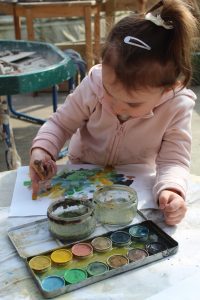
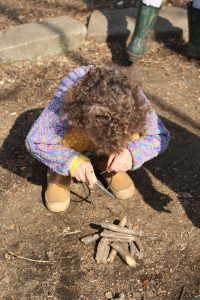
There is no doubt in my mind that the freedom of choice, the sense of open space and freedom, the ability to be autonomous in their learning experiences, to make their own choices and explore their own ideas is one hundred percent the reason that our children stand out in reception classes across our postcode as having the necessary ‘school ready skills’ (a term I abhor)!

It therefore leaves me feeling deflated, saddened and to be honest a little angry on behalf our children that these foundational skills which should be built on and nurtured throughout their childhood, is ripped away by a school education system that is failing to ignite curiosity, lifelong learning skills and most of all, an enthusiasm to learn. Having had a child recently start school after attending Inspirations I can’t tell you how against the grain I have found the homework load, the testing at age five and above all, the change in my child’s engagement in her own learning. Her interest has waned, she is no longer skipping out to tell me what she has been doing… Why, because it has been inconsequential to her, it is something that has just happened, rather than something she has engaged with and in. She is no longer at the centre of her learning process. Testing teachers teaching skills has overridden the requirement (and every child’s right) to put them at the heart of their own learning and development.
Consider an alternative
It is my view that our current learning institution is failing in terms of both the children attending and the teachers teaching. Here at Inspirations, we have witnessed first-hand the uptake of teachers leaving the profession in recent years citing burnout and their personal loss of passion for a role that is no longer rewarding to them. I have always said that working alongside children is a vocation not a job, we need to foster the passion and autonomy of the people educating our children NOT beat them down and stamp them out. This is unfortunately the situation we are currently facing within schools across the UK.
The alternative then… Let’s consider a school environment that follows a similar ethos and pedagogy to Inspirations where children and adults collaborate together in environments that encourage lifelong learning experiences, where children feel free to learn though play where they can experiment, make mistakes and learn from them without feeling like they have failed or haven’t met pre prescribed arbitrary standards. ‘Standards’ which only serve to demoralise both the teachers and students.
Our school environments haven’t changed since their conception over a hundred years ago. I for one think it’s time for a new approach.
Do you agree?
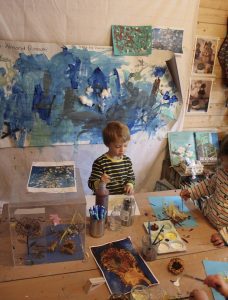
-Nicola
Duchess of Cambridge splits logs with forest school pupils
Forest School in The News
'The Duchess of Cambridge has spent the morning learning the tricks of the lumberjack trade — from a class of five-year-olds.
The duchess, 40, has been on a fact-finding mission in Denmark to learn how the country has become a world leader in its approach to early childhood development.
She used a mallet to chop wood and joined a mindfulness session with young children as she began her second day in Copenhagen at a forest kindergarten.'
Read the full article here:
https://www.thetimes.co.uk/article/4e1b8532-94a7-11ec-9aec-82f0032d4cd3?shareToken=bd3efd93a6f7f3d818a2a49b7990cd3f
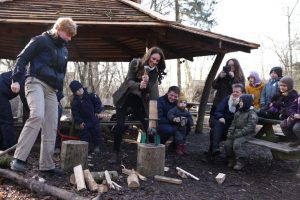
2021 in the Art Studio
Looking back over another year in the Art Studio reminds me how every year of learning is completely different to the previous one, and that's the beauty of a child led setting.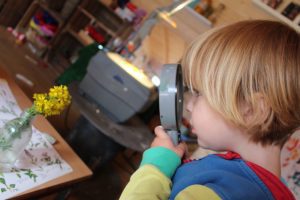
The Art Studio is Reggio Emilia inspired space for the 3 and 4 year olds. They come in smaller groups to extend any areas of learning interests through all kinds of expressive arts. It is a purpose built wooden structure set behind the yurt where the children's voice forms the basis for each following weeks planning and activities. Because of this there is no way of knowing what subjects will be explored and what questions shall be raised by the children. But one thing i do know is; the combination of their imagination and curiosity, and the art studio's extensive creative supplies of art, music and visuals makes for a thousand possibilities.
Here's just some of what we got up to this year-
The year started with an interest in creating structures. I noticed the children using clay, magnets and loose parts to build spaces. This lead onto an interest in castles and 3D shapes which lead the children to compare materials.
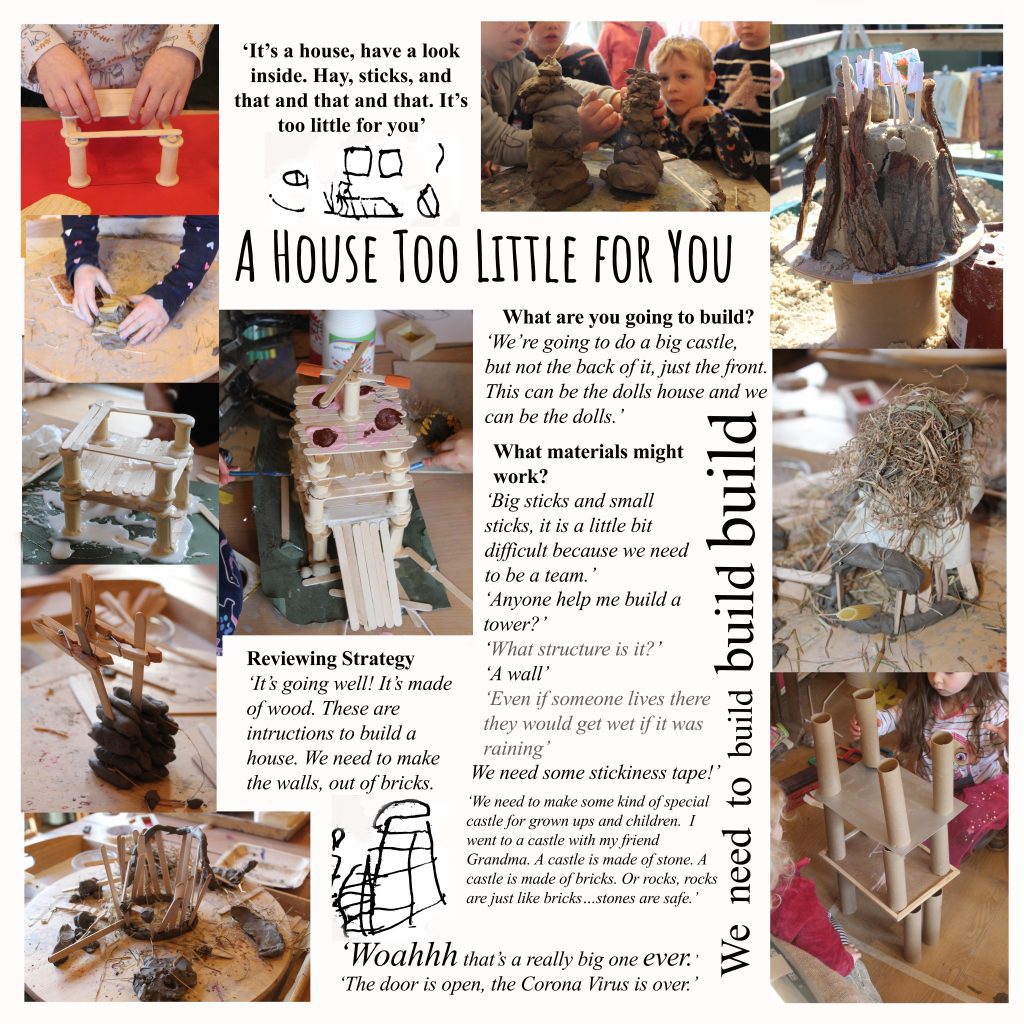
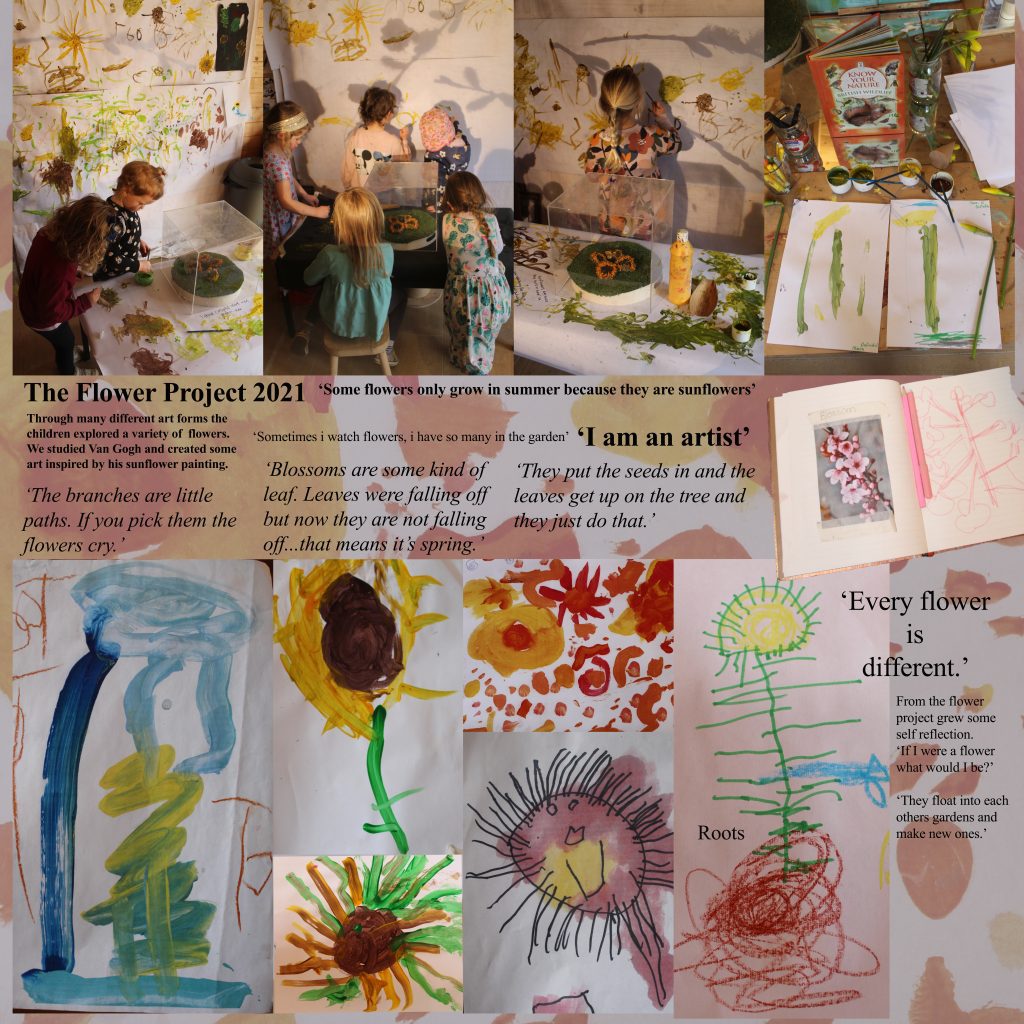
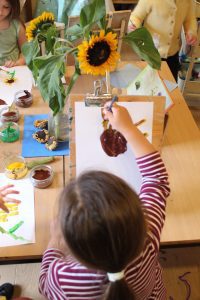
As early spring set in the children noticed changes to our trees and the first sign of growth. This was to lead onto a 7 month project exploring plants, flowers and trees, but also lead us to look at different artists and styles of painting. Van Gogh's sunflowers inspired us to try new ways of painting, as we studied Blossom, Sunflowers and Dandelions.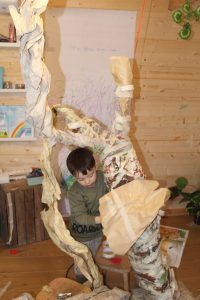
'The branches are little paths'
The growth interest lasted the entire Spring and Summer, we dissected plants and vegetables as the children experimented with their own ideas of the hypothesis of the journey from seed to plant. In the Autumn as the trees started changing they became a topic of interest which lead to a tree structure being built from floor to ceiling.
Throughout all of these group interests, individual interests are happening simultaneously and woven throughout each art session. Here's just a snippet of this years creativity-
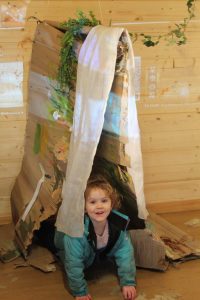

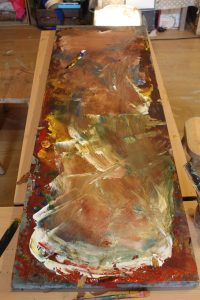
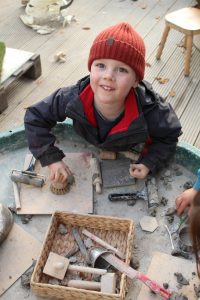
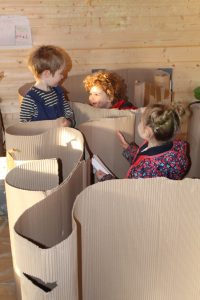
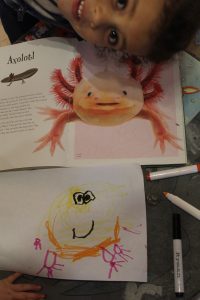
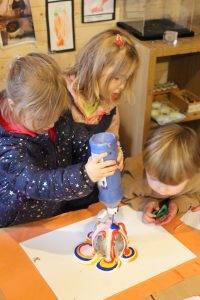
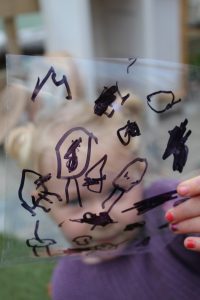
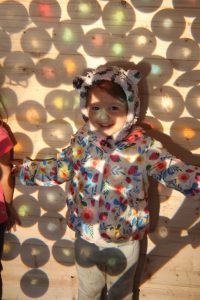
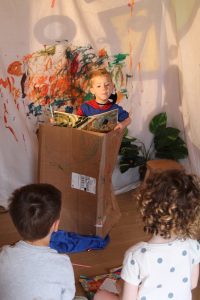
Don't forget to check out our Art Studio video on Youtube-
-Nathalie
https://youtu.be/4-59qb9GgdQ
Forest School in the News
It's becoming more common to find Forest School articles making the news and for all the right reasons. Out of the turmoil of lock down came some good news stories, and here is one that we wanted to share with you.
Lockdowns were “a chance to get off the treadmill” for families, says Lewis Ames, co-director of Devon-based forest school Children of the Forest. They’ve seen a rise in applications since the start of the pandemic, with about 150 families on their toddler-group waiting list, and 50-60 children on the waiting list for their forest school for home-educated children.
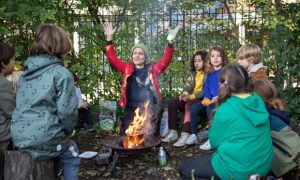
Pumpkin Picking
It's that's time of year again...
The time that nature hands us natural learning supplies by the plenty. Conkers, acorns and fallen leaves are brought into our learning environment to inspire creativity, discussions, and all kinds of learning through play.
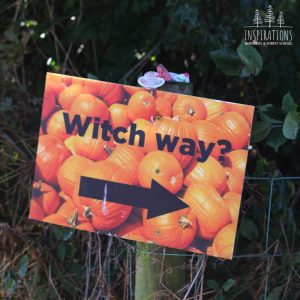
In the Art Studio, the children are inspired by Leaf Man, making their own leaf people and arrangements on the Lightbox. But there is one thing missing: pumpkins!
Every year we take our pre-school children to Kemps Farm- Horsforth Pick your own. In spring they open up for strawberry and fruit picking. In Autumn they provide thousands of pumpkins all shapes sizes and colours. How lucky we are that this is on our door step.
So on this crisp cold but sunny Thursday morning in October we counted heads, suited up and set out for our Autumn adventure.
A Beautiful Day
When we arrived it was a little different to last year, much to their delight, this time we had a tractor ride to the field. Just 5 minutes from nursery and we somehow felt like we were in the middle of the countryside. Next year the tractor driver said he might even drive us right back to nursery.
As we meandered around the one way dirt tracks through the fields of orange the children selected the pumpkins to bring back. Orange, white, green, bumpy, they selected a total variety. The terrain added to the adventure, climbing over the winding stalks and wading through the mud was a naturally formed assault course. We definitely recommend wellies!
Wheel barrows full and imaginations captured we began our walk back to Inspirations. We arrived back to our yurt in time for our Spaghetti Bolognese and we look forward to showing you what we do with our chosen pumpkins next week. Watch this space.
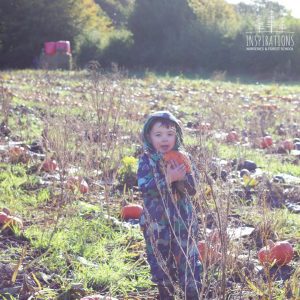
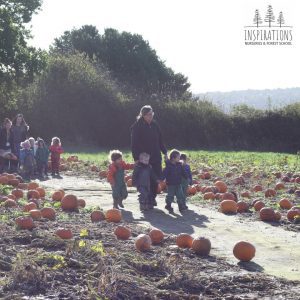
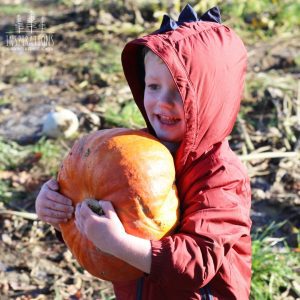
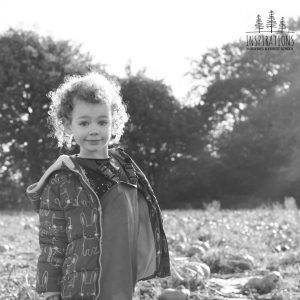
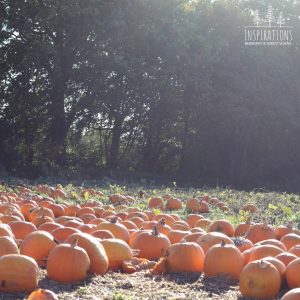
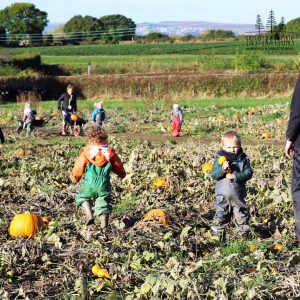
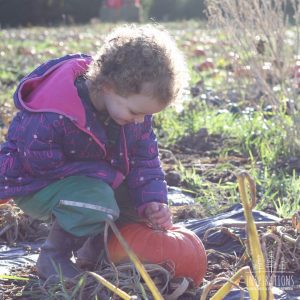
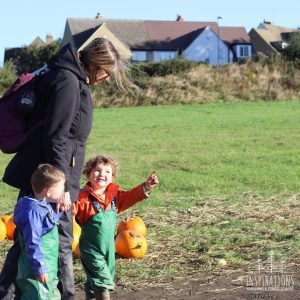
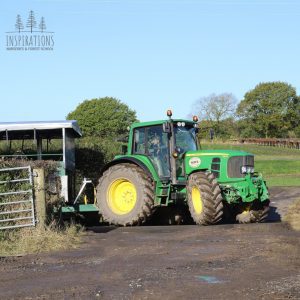
Happy Halloween!
-Nathalie
Settling into our Baby Rooms
In today's blog we take a look at the settling in process and key person allocations across our two baby rooms- The Hedgehog Room and The Butterfly room. There are many benefits to your child starting a childcare setting, it's a chance for them to develop additional social skills, learn new skills and gain independence away from their main carers. For this reason we ensure we create close bonds between our staff and your family, particularly between your child and their key person. But what is a key person?
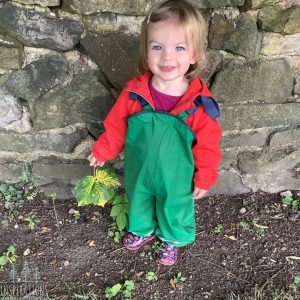 The importance of relationships
The importance of relationships
'Key person' is a term used a lot in nurseries and it a vital part of our nurturing setting at inspirations. The statutory frameworks (2017) states;
“Each child must be assigned a key person. Providers must inform parents and/or carers of the name of the key person, and explain their role, when a child starts attending a setting. Children thrive from being a part of loving and secure relationships. Children learn best when they are healthy, safe and secure, when their individual needs are met, and when they have positive relationships with the adults caring for them”.
Prior to starting Inspirations, we offer a home visit, a chance for your key person to visit a few weeks before your child's start date. This is an opportunity to tell us all about your child but also a chance for you to ask questions. This will be followed by a series of settling in visits at our setting as follows-
- 1 hour with parent or carer
- 1 hour on their own
- Longer visit including Lunch or sleep
- Last visit including lunch and sleep
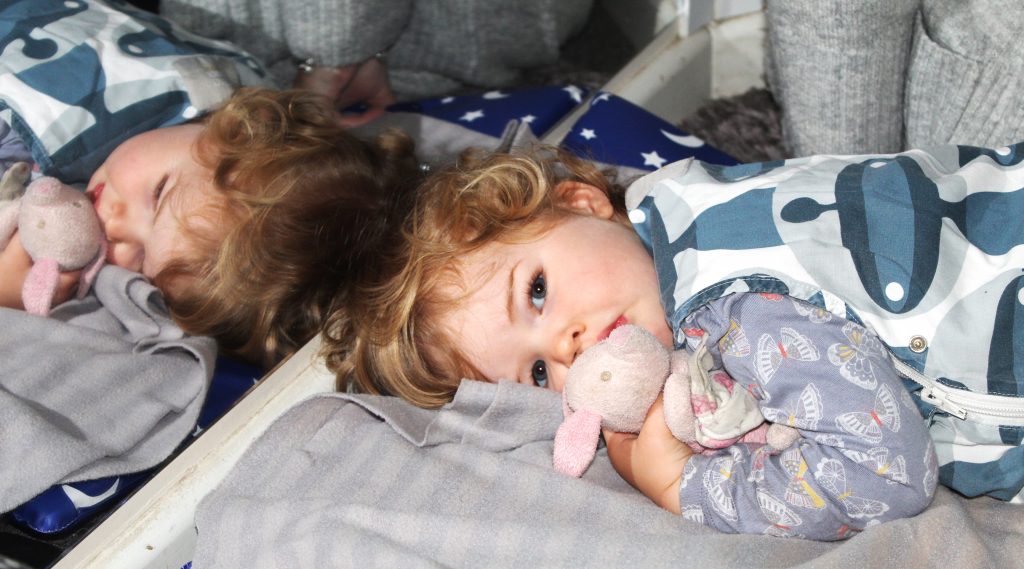
During the first session, the key person will spend time with the child and the parent; a general 'getting to know you' session. We will ask you to complete a ‘starting points’ sheet to show us what your child is currently doing and how we can meet their needs. We will also discuss sleep patterns, eating and conversations about your families and any festivals celebrated, religions or dietary requirements. By following your child’s individual routine will help them feel safe and secure, and create a home away from home. 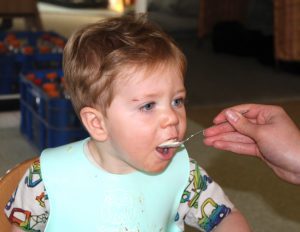 We are proud of our strong partnerships with parents and ensure we welcome you and your family into our Nursery and Forest School community.
We are proud of our strong partnerships with parents and ensure we welcome you and your family into our Nursery and Forest School community.
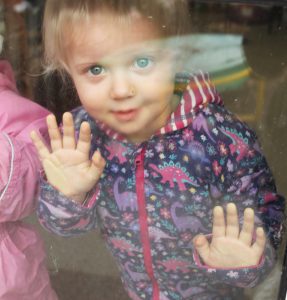 Positive relationships is one of the overarching principles of the EYFS. It’s important to form positive relationships with the children and role model the importance of 'making relationships' with others too.
Positive relationships is one of the overarching principles of the EYFS. It’s important to form positive relationships with the children and role model the importance of 'making relationships' with others too.
The Importance of Attachment
The attachment theory originates from the work of John Bowlby (1958). He wanted to look more in depth at the importance of the child’s relationship with their mother in terms of their social, emotional and cognitive development. He formulated his theory surrounding a link between early infant separation with the mother and later mental health problems. Bowlby proposed that attachment with a caregiver provides safety and security for an infant. Within his theory, it is suggested that between 0-5 years old is a critical period of time to form attachments with care givers and forms a secure base for children when exploring the world. Attachments are emotional bonds that children develop with parents and other carers such as their key person at nursery. It is thought that children who have secure attachments cry less when separated, they engage in more pretend play and have a strong sense of who they are. The settling in visits we offer are to support the attachment theory and help the children start to form those attachments with their key person and even the other adults and children in the room.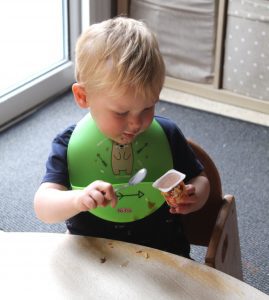
The home visit and the first visit with the parent is vital to show the children that the parent trusts this new person in their life and they can role model a positive relationship through talking about your children.
If you have any other questions about our baby room settings please don't hesitate to get in 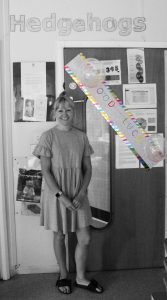 touch at 0113 2585800 then follow the extension to either the Office, The Butterflies or The Hedgehogs.
touch at 0113 2585800 then follow the extension to either the Office, The Butterflies or The Hedgehogs.
This week we are excited to announce Sophie will be our new Room Leader of The Hedgehogs room, as Tara moves on to her new role as Training Manager after 17 years of running the Baby Room. We wish them both well in their exciting new roles within our Nursery.
Summer Solstice
It was the longest day of the year on Monday, also known as Summer Solstice. A day we weren't going to allow to slip past us without making the very best of it.
Summer Solstice occurs when one of the Earth's Poles has its maximum tilt toward the Sun, and so naturally we spent the whole day outdoors.
Usually for our Pre-Schoolers our Forest School sessions come back to the Yurt for lunch, before taking another group session in the afternoon. But this Wednesday we took lunch with us and spent the whole day in the forest.
It was beautiful.
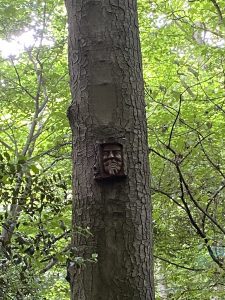
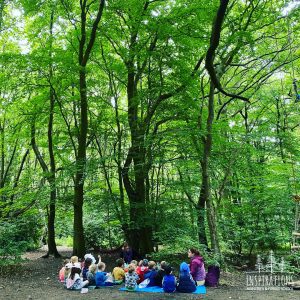
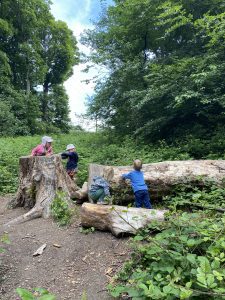
Its amazing to see how the environment shapes behaviour and guides play. Spending the whole day in the woods allowed the children the freedom of both space and time without us having to cut short their explorations.
As we entered the woods a little boy at the front ran ahead, I was just about to call him back when I realised he was running to a particular tree simply to wrap his arms around it.
Nature Appreciation
As he held this embrace it occurred to me that this boy was excited to be reunited with a tree, and how wonderful that is.
How often do we remember to be thankful for plants and trees growing around us? I sure learnt something in that moment.
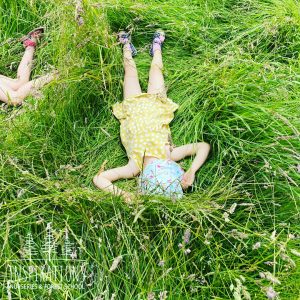
They needed this time.
They had their lunch beneath the trees, played in the hammock and rope swing, collected sticks to create dens, made their own books and explored at their own pace. At the end of the day we played in the long grass, and finished with a Nature Appreciation Story.
Then we headed back to nursery much dirtier, but calmer, wiser and more thankful of the world around us.
'Hello friends, I can see all of the sunshine in you'
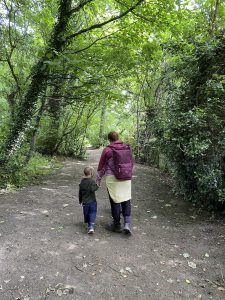
Little Litter Pickers
It was during one of our daily Forest School trips that one of our Pre-School children expressed disappointment at finding litter on the ground. We decided to order some litter pickers and set out on an adventure to clean up Horsforth.
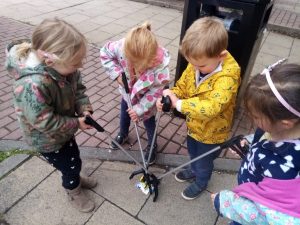
At least once a week now a small group set off around Horsforth with Litter Pickers and a bag, collecting every item of trash they see along the way. So far we have met some wonderful people who stop and thank the children. It's a wonderful way of getting exercise, meeting our locals and helping our community.
Watch the video here-
https://www.youtube.com/watch?v=5N-yULXVwjk
We're proud of our children for noticing the world around them and caring about the place they live. Would you like to help make Horsforth a cleaner place? Check out the Horsforth Litter Pickers group on facebook.
Toddler's Forest School Garden
Measured Risks and The Great Outdoors
Getting outdoors could not be more important right now, and the health benefits that come with it are not only beneficial but fundamental to our wellbeing. But are the youngest members of our society getting enough outdoor adventurous play? Recent studies suggest not. 85% of parents admit they would like their children to have more adventure, whilst 44% admit they played outside more as a child then their own children do. Indeed this is a sign of the times and sometimes children miss out on these opportunities due to safety worries.

At Inspirations you can rest assured that your children are getting more than their fair share of outdoor play. Our outdoor areas are of equal, if not more importance to our indoor spaces. The 2-3 age group is where our children are first introduced to a designated forest school area in addition to their outdoor area.
Our toddler room garden is an extension of their classroom, filled with repurposed objects and areas that support the many types of schemas as mentioned in the previous blog. There are balancing beams, planks, crates, small world areas to support interests, and many more. It is here we make use of the larger loose parts and ambiguous resources such as milk crates, planks and go kart wheels. We have an open doors policy so in all weathers our toddlers have access to the outdoors.
Raising Confident Learners
Not all children have easy access to nature, so it's important we offer this space from a young age. But why is it important for young children to experience adventurous play?
In 2019 we gained planning permission to extend our toddler room garden and build a Forest School Area. This zone is opened up with increased staffing and introduces the children to more adventurous play, with tracks, steps, netting, hills and trees to explore and climb.
Providing this access opens up valuable experiences they may not get elsewhere. As their brains are forming, growing and changing every minute these measured risks they are exposed to supports healthy boundaries and emotional and physical development. This purpose built area means children are using core muscles, with hills to mount and areas to climb. The uneven ground tests and strengthens their vestibular balance skills and coordination.
Whilst children navigate this recently developed area we encourage them to safely create their own boundaries, trial ways of movement, and learn to just keep trying. Instead of suggesting how to use the area, we as educators will avoid giving direction but instead ask open ended questions. 'I wonder where you'll go next?' or 'wow that looked really hard, and you didn't give up'. By focusing on questions and observations rather than just praise and direction we are building our toddlers inner confidence that sets them up for life.
By creating dens between the trees, growing lavender and scaling balance beams, having this little taste of adventure prepares our toddlers for Forest School when they move to Pre-school ....and beyond.






